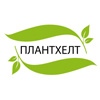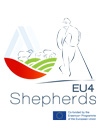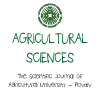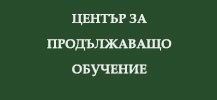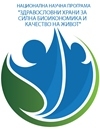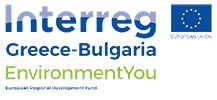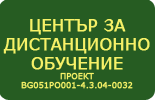Rural development
|
Course title: |
Rural development |
|
|
Course code: |
IFRDV |
|
|
ECTS: |
5 |
|
|
In-class hours |
Lectures: |
30 |
|
Laboratory work/Tutorials: |
30 |
|
|
Self-preparation hours |
Practical training: |
45 |
|
Other: |
20 |
|
|
Total hours: |
125 |
|
|
Language: |
English |
|
|
Study cycle: |
BSc |
|
|
Semester: |
Winter, summer |
|
|
Faculty: |
Faculty of Economics |
|
|
Name of the lecturer(s): |
Chief Assist. Prof. Krum Hristov, PhD |
|
|
Mode of delivery: |
Face-to-face, distance learning |
|
|
Prerequisites: |
No prerequisites |
|
|
Learning outcomes of the course unit: |
The course "Rural Development" aims to acquaint students with the historical development, the state at the time and opportunities for rural development in the European Union. Students learn the major problems of rural areas in an enlarged Europe, looking for the role of agriculture in rural areas. Particular attention is paid to the differences related to rural development in different parts of the Union. The course examines the impact of the main factors determining the opportunities and the pace of development and analyses the degree of sustainable use of resources in rural economies. The topic of the course includes three main sections: (1) Major problems of rural areas (2) Analysis of the rural economy and infrastructure (3) Institutions, policies and programs to support rural development in the European Union. |
|
|
Course contents: |
LECTURES Topic 1. Characteristics of rural areas. Historical development of rural areas in Europe. Underdeveloped rural areas. Mountain and other areas with unfavorable conditions for development. Main problems of rural areas in the European Union. Topic 2. Role of agriculture in rural development in the European Union. Problems of agricultural development in Europe. Development of CAP. Resource use in agriculture. Topic 3. Demography and demographic problems of rural areas in the European Union. Industrialization and migration processes. Ethnic change and level of adaptation. Topic 4. Education and culture in rural Europe. Differences in scope and quality of education. Education and labor market. Urban and rural culture in the community. Topic 5. Health care in rural areas of Europe. Changes in health status of people living in rural areas. Development of health systems in new members. Topic 6. Policy for Agriculture and Rural Development in the European Union. Mono-sectora land integrated development. Regional and local policies for rural development. Public attitudes. Topic 7. Programmes for Rural Development. Place and role of European Agricultural Fund for Rural Development (EAFRD) and its relationship with major programs. Development programs for local initiative. The role of communities in rural development. Topic 8. Institutions for Rural Development in Europe. Social capital, informal and formal institutions. Decentralization and Development of NGOs in rural areas. Topic 9. Quality of Life and Human Development Index. Methods for determining the human development index. Topic 10. Regional, district and municipal indices of human development. Typing of European regions, districts and municipalities
EXERCISES Topic 1. Characteristics and regulatory basis for determining the rural poor rural areas, mountainous and other areas with handicaps to development. Topic 2. Analysis of the main problems of the rural poor rural areas, mountainous and other areas with handicaps to development. Topic 3. Evaluation of the results of agrarian reform and its impact on rural development and agricultural tourism. Topic 4. Analysis of the institutional environment and its impact on rural areas, poor rural areas, mountainous and other areas with handicaps to development. Topic 5. Policies and programs for rural development. National Plan for Agriculture and Rural Development. Topic 6. Methods for determining the human development index. Determination of regional and municipal indices of human development |
|
|
Recommended or required reading: |
1. COUNCIL REGULATION (EC) No 1698/2005 of 20 September 2005 on support for rural development by the European Agricultural Fund for Rural Development (EAFRD) - http://eur-lex.europa.eu/LexUriServ/LexUriServ.do?uri=OJ:L:2005:277:0001:0040:EN:PDF 2. COUNCIL REGULATION (EC) No 1290/2005 of 21 June 2005 on the financing of the common agricultural policy - http://eur-lex.europa.eu/LexUriServ/LexUriServ.do?uri=OJ:L:2005:209:0001:0025:EN:PDF 3. COMMISSION REGULATION (EC) No 1974/2006 of 15 December 2006 laying down detailed rules for the application of Council Regulation (EC) No 1698/2005 on support for rural development by the European Agricultural Fund for Rural Development (EAFRD) - 4. http://eur-lex.europa.eu/LexUriServ/LexUriServ.do?uri=OJ:L:2006:368:0015:0073:EN:PDF 5. COMMISSION REGULATION (EC) No 1998/2006 of 15 December 2006 on the application of Articles 87 and 88 of the Treaty to de minimis aid - http://eur-lex.europa.eu/LexUriServ/LexUriServ.do?uri=OJ:L:2006:379:0005:0010:EN:PDF 6. COMMISSION REGULATION (EU) No 65/2011 of 27 January 2011 laying down detailed rules for the implementation of Council Regulation (EC) No 1698/2005, as regards the implementation of control procedures as well as cross-compliance in respect of rural development support measures - http://eur-lex.europa.eu/LexUriServ/LexUriServ.do?uri=OJ:L:2011:025:0008:0023:EN:PDF 7. RURAL DEVELOPMENT PROGRAMME OF BULGARIA (2007-2013) - http://prsr.government.bg/index.php/bg/sections/l3/26 8. ANNEXES TO RURAL DEVELOPMENT PROGRAMME OF BULGARIA (2007-2013) - http://prsr.government.bg/index.php/bg/sections/l3/26 9. http://www.unizar.es/euroconstitucion/Links.htm 10. http://europa.eu/index_en.htm |
|
|
Planned learning activities and teaching methods: |
The material on the subject "Rural Development" is taught by lectures and exercises. Educational videos and suitable computer programs are used in the process of teaching. Extracurricular classes are conducted as individual studies of problems and possible solutions to a specific rural community. Materials and data from the websites of the European Union, FAO, World Bank and other European institutions are used. |
|
|
Assessment methods and criteria: |
Final assessment is given based on the results of written examination (50%), course project paper (30%) and exercises evaluation (20%). |
|
 - Събития по случай 80-я юбилей на АУ
- Събития по случай 80-я юбилей на АУ
